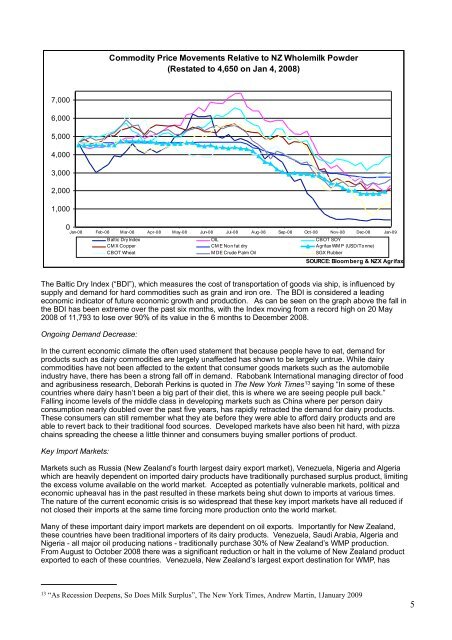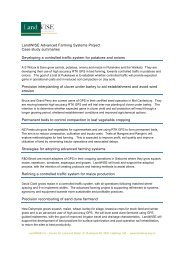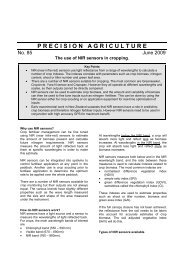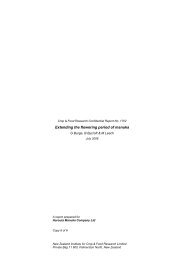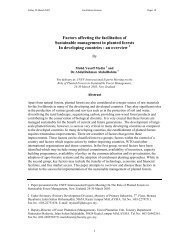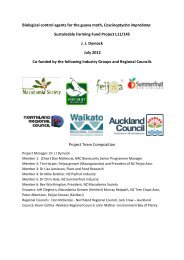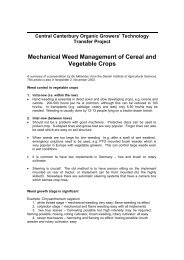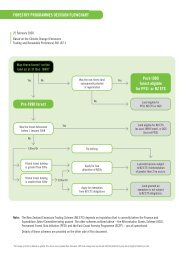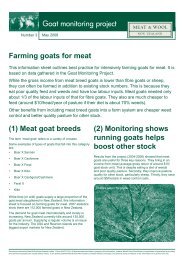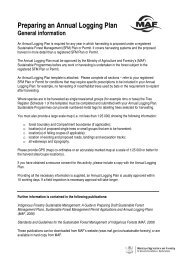Create successful ePaper yourself
Turn your PDF publications into a flip-book with our unique Google optimized e-Paper software.
The Baltic Dry Index (“BDI”), which measures the cost of transportation of goods via ship, is influenced by<br />
supply and demand for hard commodities such as grain and iron ore. The BDI is considered a leading<br />
economic indicator of future economic growth and production. As can be seen on the graph above the fall in<br />
the BDI has been extreme over the past six months, with the Index moving from a record high on 20 May<br />
2008 of 11,793 to lose over 90% of its value in the 6 months to December 2008.<br />
Ongoing Demand Decrease:<br />
In the current economic climate the often used statement that because people have to eat, demand for<br />
products such as dairy commodities are largely unaffected has shown to be largely untrue. While dairy<br />
commodities have not been affected to the extent that consumer goods markets such as the automobile<br />
industry have, there has been a strong fall off in demand. Rabobank International managing director of food<br />
and agribusiness research, Deborah Perkins is quoted in The New York Times 13 saying “In some of these<br />
countries where dairy hasn’t been a big part of their diet, this is where we are seeing people pull back.”<br />
Falling income levels of the middle class in developing markets such as China where per person dairy<br />
consumption nearly doubled over the past five years, has rapidly retracted the demand for dairy products.<br />
These consumers can still remember what they ate before they were able to afford dairy products and are<br />
able to revert back to their traditional food sources. Developed markets have also been hit hard, with pizza<br />
chains spreading the cheese a little thinner and consumers buying smaller portions of product.<br />
Key Import Markets:<br />
Markets such as Russia (New Zealand’s fourth largest dairy export market), Venezuela, Nigeria and Algeria<br />
which are heavily dependent on imported dairy products have traditionally purchased surplus product, limiting<br />
the excess volume available on the world market. Accepted as potentially vulnerable markets, political and<br />
economic upheaval has in the past resulted in these markets being shut down to imports at various times.<br />
The nature of the current economic crisis is so widespread that these key import markets have all reduced if<br />
not closed their imports at the same time forcing more production onto the world market.<br />
Many of these important dairy import markets are dependent on oil exports. Importantly for New Zealand,<br />
these countries have been traditional importers of its dairy products. Venezuela, Saudi Arabia, Algeria and<br />
Nigeria - all major oil producing nations - traditionally purchase 30% of New Zealand’s WMP production.<br />
From August to October 2008 there was a significant reduction or halt in the volume of New Zealand product<br />
exported to each of these countries. Venezuela, New Zealand’s largest export destination for WMP, has<br />
13<br />
“As Recession Deepens, So Does Milk Surplus”, The New York Times, Andrew Martin, 1January 2009<br />
5


